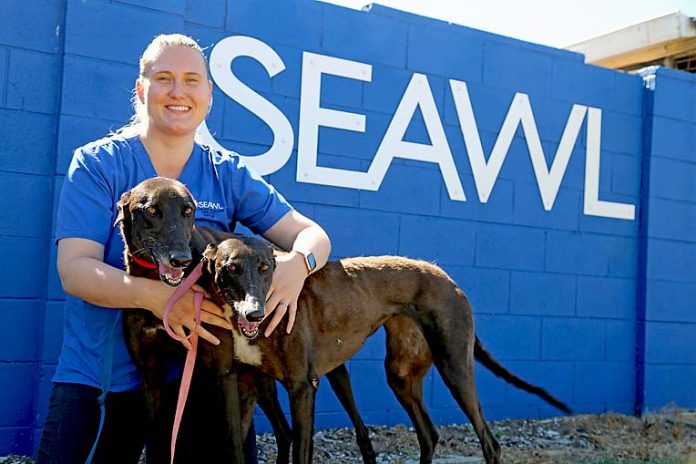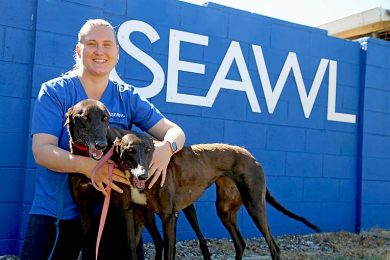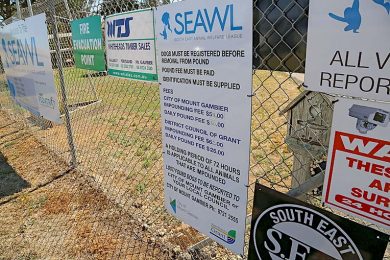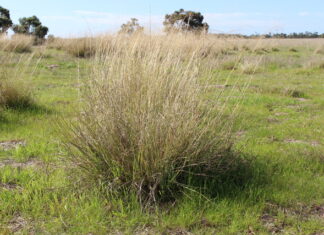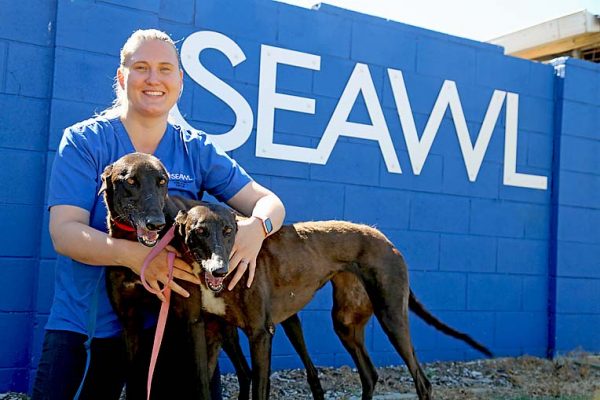
THE future of the South East Animal Welfare League (SEAWL) is under a cloud as Mount Gambier City Council rejected a bid for additional operating funds and will explore “alternate
options” of animal control.
Councillors made no change to the current funding agreement, which is due to expire at the end of June.
The decision follows league proponents last year calling for an extra $100,000 from Mount Gambier City and Grant District councils.
The request was discussed at City Council’s September meeting, with elected members deferring the decision to the incoming council for deliberating following the November elections.
Grant council voted last year not to increase its $12,000 allocation, citing a downward trend in the number of impounded dogs, the construction of their own impounding facility and an increase in microchipping.
The league currently receives funding contributions for operations through a tripartite agreement between the league, City Council and Grant District Council.
The five-year agreement provides City Council contributes $28,600, adjusted by CPI each year and also allows for impound fees per dog to be retained by SEAWL.
Mount Gambier elected members supported council investigating its own method of managing animals, with a staff report citing a reduction in dog impounds and rising impounding fees.
According to the report, the impact of social media in reuniting dogs with their owners is a “significant factor” in the reduction of impounds, with staff predicting a further 25pc decline in the coming year.
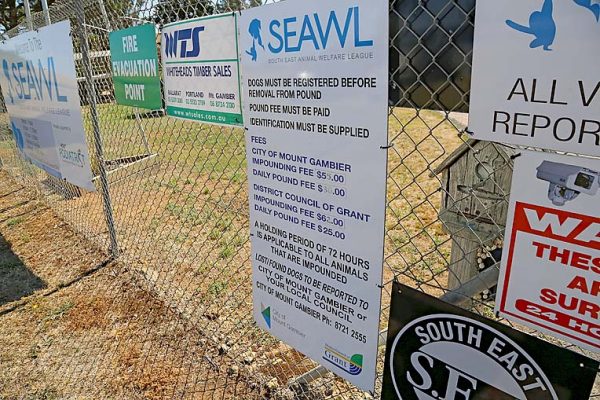
Staff estimate between 60 to 75 impounds in 2018/19, down from a figure of 169 pre-2014.
The cost to council per dog impound has raised in recent years, from $189 in 2014/15 to a predicted $476 in 2018/19.
SEAWL president Trevor Twilley said the charity animal shelter would now take a “wait and see” approach ahead of the June 2019 funding expiry.
He said he was disappointed with the resolution, saying the lack of funds could have a detrimental affect on the league’s operations.
“If we have no financial income from both councils, our long-term sustainability will be at risk,” he said.
“We also receive funding from the community through fundraisers, but we cannot keep relying on this generosity for our sustainability.”
Council’s staff report floats the return of having a set rate per animal impounded, investigating whether the existing council holding facilities could be adapted for better use or “the development of a new agreement that better reflects the changing context of animal control needs” as potential options.
Mr Twilley supported continued funding of the centre and raised concerns with the financial implications of council staffing its own facility.
“The reality is we have a lot of overheads, including electricity, veterinary bills, feed bills and fuel vouchers for the volunteers,” he said.
“In 2016, a City Council report estimated it would cost $170,000 a year just to staff their shelter.
“Then they have to be humane to the animals as well, for instance at SEAWL we have spray mists so animals are kept cool.
“Often we get dangerous and vicious animals and we have isolation areas for the safety of other animals, our volunteers and themselves.”
Mr Twilley said the shelter’s board would discuss options at an upcoming meeting, flagging a potential submission for funding “well in advance” of council’s 2019/20 budget deliberations.

